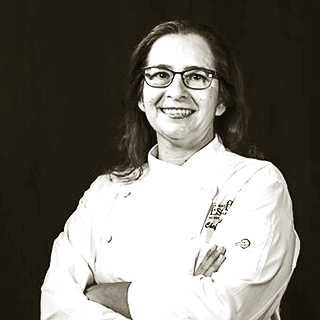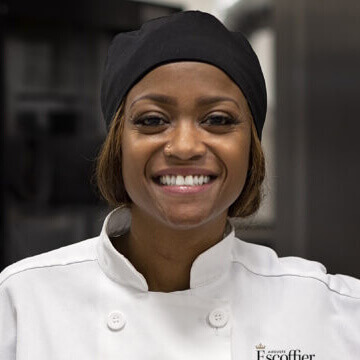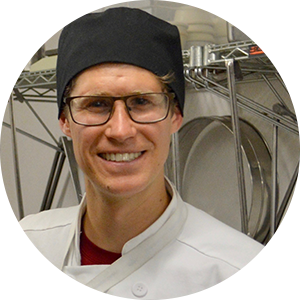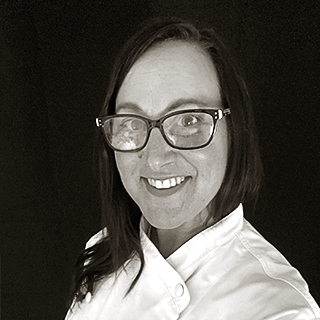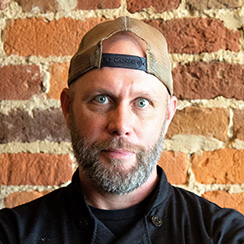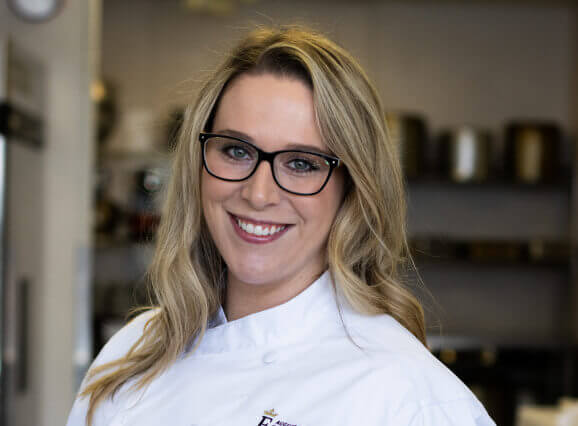Listen to This Article:
The visual arts include painting, sculpture, and ceramics. The performing arts include music, dance, and drama. So what do the “culinary arts” include?
If you are exploring a future career in food, you are likely to have come across this term. It’s a broad phrase that may seem like a catch-all for anything food-related. But in reality, not all foods and cooking methods necessarily fit into the culinary arts category.
Let’s explore what the culinary arts are, what they’re not, and what a career in this field may look like.
The Culinary Arts Defined
Culinary arts is a broad term that refers to the preparation, cooking, plating, presentation, and service of food. It applies to meals and their components – like appetizers, side dishes, and main courses – rather than desserts or breads.
What’s Included Under the Culinary Arts Umbrella?
Culinary arts covers a wide spectrum of disciplines. These include food science and nutrition, the quality of the ingredients, seasonality, flavors and textures, styling and color on the plate, and more. Under this vast umbrella, there are many specialties, niches, and job titles.
Despite the term, culinary arts are actually part art and part science. Understanding what’s happening on a chemical or cellular level when cooking can give cooks and chefs more freedom to experiment and come up with unique and clever recipes, pairings, and platings – as well as make ingredient substitutions, as is common in the plant-based culinary arts.
Therefore, culinarians are disciplined creatives who combine science and art to make something distinctive. While the taste of the food is obviously important, the culinary arts encompass all of our senses to create a rich and multifaceted experience.
Culinary Arts vs. Baking & Pastry Arts
While the broad definition of culinary arts may imply that it includes the preparation of ALL foods, industry professionals usually separate culinary from baking and pastry.
Culinary arts refers to everything that goes into a meal, from the appetizer through the entree. This could include breakfast, lunch, dinner, or snacks. It can include soups, salads, proteins, grains, veggies, and more. And the service style could be plated, family-style, small plates, passed appetizers, or buffet.
Baking and pastry, on the other hand, includes desserts like cakes, pies, petit fours, chocolates, and more. It also includes breads, pastries, croissants, biscuits, and other baked goods.
Why separate the two? The difference is generally attributed to the way the two arts are approached. In culinary arts, the recipes can often be open to interpretation and tweaks made on the fly—a little extra salt, a slightly longer cooking time. In baking and pastry, each recipe is a scientific formula that must be followed to the letter. It’s much more precise, and therefore does not allow for the same kind of adjustments.
While they are two separate disciplines, there is often overlap between the two. (Think about quiches and pot pies, which are technically entrees made with pastry.) That’s why many culinary degree programs, like those at Auguste Escoffier School of Culinary Arts, also include some coursework in baking and desserts.
Possible Career Paths in the Culinary Arts
It would be impossible to list every career opportunity available to those working in the culinary arts. The industry is extensive, ever-changing, and full of niches. But here’s a partial list of some of the career paths you could choose within this discipline.
Cook or Chef
Prep cooks, line cooks, sous chefs, executive chefs, and more all work together in the kitchen to fulfill orders and keep people fed. They may work in a restaurant, ghost kitchen or ghost restaurant, food truck, hotel, resort, cruise line, hospital, school, cafe… the options are endless.
“Chef” (French for “Chief”) is traditionally a title that denotes the head of the kitchen, and is generally considered a highly-skilled culinary expert. The chef usually creates the menu and recipes and oversees the rest of the staff. The cooks, on the other hand, do the prep work and much of the cooking to the chef’s specifications. The chef title must be earned, which can take many years!
Catering Cook or Chef
Catering cooks and catering chefs provide food for large events like corporate meetings, weddings, banquets, fundraisers, and more. Caterers cook large volumes of food at once, so they have to be expert at maintaining quality standards at a higher scale.
Many catering cooks and chefs hone these skills in culinary school or via a restaurant management degree program. In fact, Escoffier’s Associate Of Occupational Studies In Hospitality and Restaurant Operations Management includes an entire course on Catering and Event Operations.
Private Chef or Personal Chef
A private chef works for a single client or family, providing their daily meals. They might even live with the family. A personal chef usually cooks for a wider variety of clients. They may create a weekly menu that they’ll prepare in large batches and deliver to their clients.
Restaurant Owner or Manager
Experience in the culinary arts can be useful both in and out of the kitchen. Some culinarians have the goal of opening their own restaurants or becoming restaurant managers where they can be involved with food in a customer-facing role.
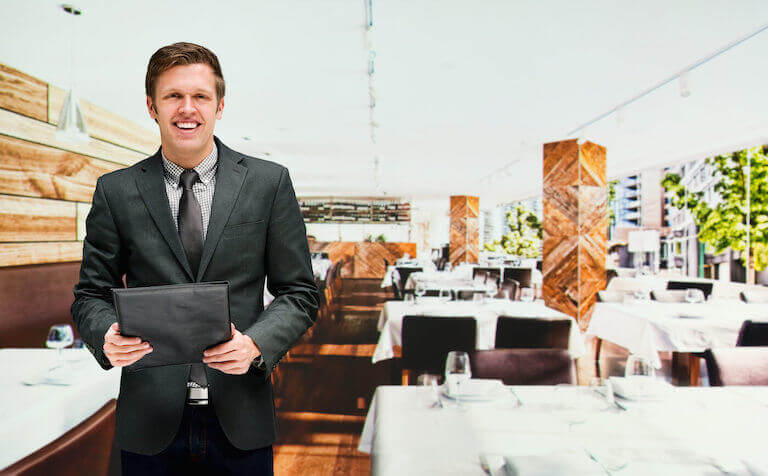
Recipe Developer
Recipe developers test and perfect their recipes, either for themselves or with another chef. These efforts could be done for a restaurant, a blog, a cookbook, or even a television show. Some recipe developers work in research and development roles, specifically focused on food science.
Cookbook Author
Writing a cookbook is a labor of love. It often accompanies another culinary career, but it doesn’t have to! Cookbook authors develop recipes and often share personal stories to make the book more interesting for the reader.
Food Writer or Blogger
Food writers come in many forms. Some are critics. Some are historians. Some study food trends or explore the culinary arts through an anthropological lens. These days, food writers don’t necessarily have to try to get published in major print magazines. Instead, they can create and monetize their own blogs, or contribute articles to online food publications like Eater or Serious Eats.
Food Photographer
Culinary expertise can be a significant asset to food photographers. These folks work with venues or publications to take beautiful photos of food. Sometimes they actually have to cook what they’re shooting themselves, so proper technique is key. Knowledge of ingredient colors, textures, and cooking methods can also help them with proper lighting and shot composition.

Food Manufacturer
There is an enormous market out there for delicious prepared foods. Both large-scale and artisan food processors can prepare jams and jellies, pickles, hot sauces and salsas, dressings and spreads, aged and cured meats, and so much more. Knowing how to preserve, store, sell, and ship these packaged items can be an entire career pursuit in itself!
Chef Consultant
A chef consultant is an independent expert that can help with staff training, efficient kitchen operations, menu design and pricing, product development, restaurant profitability, and more. They may work with restaurants or other hospitality businesses, or directly with food manufacturers.
Food Stylist
Food stylists arrange a dish’s final presentation, often for photography. Their work may appear in food magazines or blogs. Some food stylists also work in film and television, styling food and dishes for the screen. These foods don’t necessarily have to taste as good as the menu items in a restaurant – in fact, they’re sometimes altered slightly to work better in a studio environment. But having a culinary degree can help food stylists train their eyes to notice details and nuances in expertly-prepared dishes… and then mimic that for the page or the screen.
Why Get a Culinary Arts Degree or Diploma? What Is Taught in Culinary School?
Culinary arts curricula are not the same across schools and programs. Escoffier’s Culinary Arts programs are designed to prepare students with technical proficiency, theoretical knowledge, and business-oriented skills. This combination can help prepare them to be both skilled cooks and excellent assets to the restaurant or foodservice establishment where they work.
One of the first courses that Escoffier Culinary Arts students take is where they start to build the skills that they may use every day in their work. Coursework includes terminology, knife skills, mise en place, food safety, seasoning, and sanitation, among many lessons. Subsequent courses in the culinary school curriculum then build on these basics.
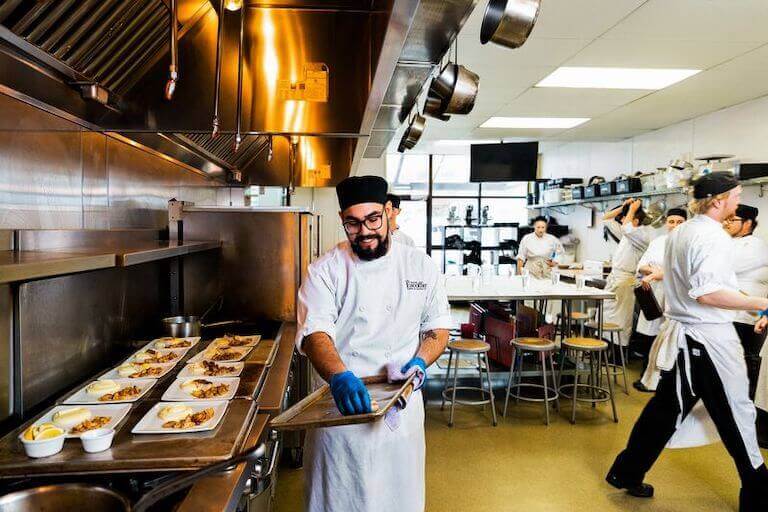
For example, later courses take what students have begun and add some pastry knowledge on top – like breakfast cookery, charcuterie, and garde manger. Remember that the line between the two can blur, so the best chefs often have skills in both culinary arts and pastry.
While Escoffier’s curriculum is based in French cuisine, a great culinarian should know more than a single style. In some Escoffier courses, students can explore additional European culinary methods, as well as food from the Middle East, Asia, and the Americas.
On the business side of a culinary degree or diploma program like Escoffier’s, students can complete coursework in technical writing, math and accounting, entrepreneurship, leadership, and communications—all specifically tailored to the culinary industry.
Another important aspect of a culinary education is sustainability. In our global food climate, it’s important to know where our food comes from and how it’s produced. The Farm to Table® Experience at Escoffier can introduce students to concepts of traditional and nontraditional farming. It also allows them to explore the impact that farming and food production have on the global environment.
At the end of the culinary degree or diploma program, students must complete at least one hands-on industry externship to graduate. Here, they can practice their skills and see how a commercial kitchen works in a non-classroom setting.
This education, from basic cooking skills to business acumen to the environmental responsibility of the cook, can make culinary school graduates well-rounded and can prepare them for their first jobs in the industry.
Why Study the Culinary Arts?
If you want to start on a path in one of the above careers, why should you study in a formal culinary school program? Can’t you just learn as you go?
Remember, the culinary arts are part science, part art. And a culinary degree or diploma can be key to understanding the science behind culinary technique.
The kitchen is fast-paced. And that means it’s not necessarily the best environment for asking questions or absorbing information. A kitchen can be an ideal place to learn speed and efficiency, teamwork and leadership, and new recipes. But it may not allow you to explore why an emulsion works, or why raw chicken should always be stored on the bottom shelf of the walk-in.
If you study in a formal culinary arts program, you could be equipped with not just the how, but the why behind many common culinary techniques. Plus, you’re empowered to start your career with good habits, like working cleanly and being aware of what’s around you. Some culinarians who start their careers in the kitchen can pick up bad habits that might be hard to shake.
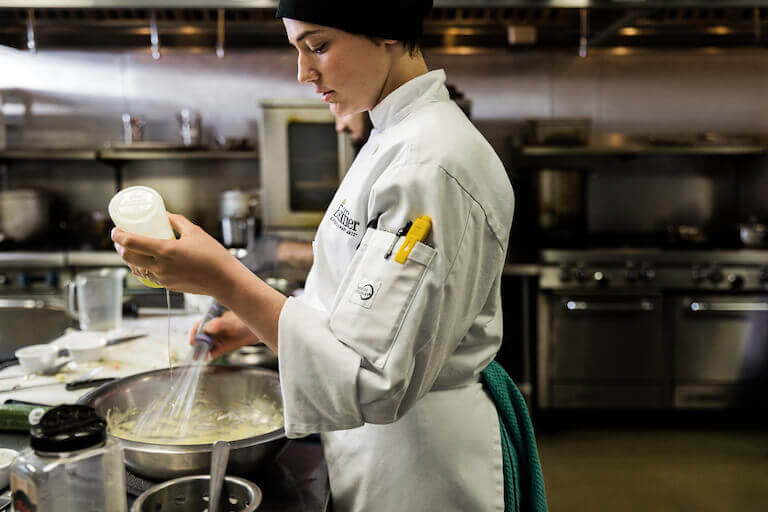
While you can continue to build on this foundational knowledge throughout your career, your education can also prepare you to hit the ground running in your entry-level culinary job. In fact, many culinarians say that their culinary school program helped them advance in their careers much more quickly.
And beyond what you can learn in culinary school, it’s important to keep in mind who you’ll be learning from. Escoffier’s Chef Instructors are culinary experts with established, successful careers. Among them are executive chefs, restaurant owners, Certified Executive Chefs®, cookbook authors—and many others with accolades and credentials too numerous to count!
These experts can serve not only as your professors but also your mentors. And while they’re certainly there to support you throughout your culinary degree program, they may even continue to provide advice and feedback after graduation day if you take advantage of opportunities to network with them.
Essential Articles to Read About the Culinary Arts
4 Advanced Cooking Methods for Every Chef
4 Non-Cooking Skills That All Chefs Need
Different Knives and the Best Uses for Each
How Culinary Students Explore Flavor Profiles
Five Culinary Skills You Can Take With You Wherever You Go
Why a Culinary Degree Doesn’t Automatically Make You a “Chef”
Are the Culinary Arts Right for You?
If you’re thinking about a career in the culinary arts or considering earning your culinary degree, how can you be sure that this industry will be a good fit for you?
All culinarians are different. But if you share some of these common characteristics, you may find that this career path is indeed where you belong.
You Have a Passion for Food
Clearly, a passion for cooking delicious food is a core requirement for a culinary career.
Whether you’re making a meal for your family or for a packed dining room, each dish must be approached with care. And that kind of day-in, day-out attention to detail benefits from passion.
You Want a Career Outside the Traditional Office
Some people love the “traditional” job structure, with a quiet office and the same working hours every day. For others, a dynamic, exciting workplace is more their speed. The bustle of a kitchen can satisfy that desire for activity and buzz, with no two days looking quite the same.
You Like to Work With Your Hands
Culinarians work with food, and that usually means working with their hands. There are a few exceptions to this, like food writers or consultants. But in general, the culinary arts is a creative, hands-on pursuit—literally.
You Love to Learn
Cooks and chefs are constantly improving their skills and learning new things, even after culinary school. There’s a whole world of culinary traditions and techniques out there, and the industry is always evolving to cater to alternative diets and lifestyles. One lifetime isn’t enough to explore it all… but that doesn’t stop culinarians from trying!

Starting a Career in the Culinary Arts
If you’ve decided that the culinary arts are for you, what’s next? A successful career in this industry, and reaching your ultimate goals, usually comes from a combination of education and experience.
Attend Culinary School to Start Building Your Skills
A formal culinary education can get your career in food off to a strong start. You have options to choose from: a dedicated culinary school like Escoffier, a four-year undergraduate program, or a community college program where you can get a degree or diploma.
In the past, a culinary degree program would require aspiring chefs to uproot their lives to travel to a culinary school, or to go on hiatus from their jobs so they would have time to complete their education.
With online culinary school programs, that is no longer the case. Escoffier was a pioneer in this flexible, remote method of instruction. Students can get their degrees or diplomas by attending Escoffier’s online program, with an in-person industry externship. This removes the need to travel and can make it much easier to balance work, family, and school.
As discussed above, each program has its own curriculum. But we recommend looking for a program that is exclusively focused on the culinary arts. This way, you’re not spending time and money on “general” coursework that may not apply to your future career goals.
And if you’re not sure what your culinary goal is yet, that’s okay. Students often find their niche during the process of working through their programs in culinary school.
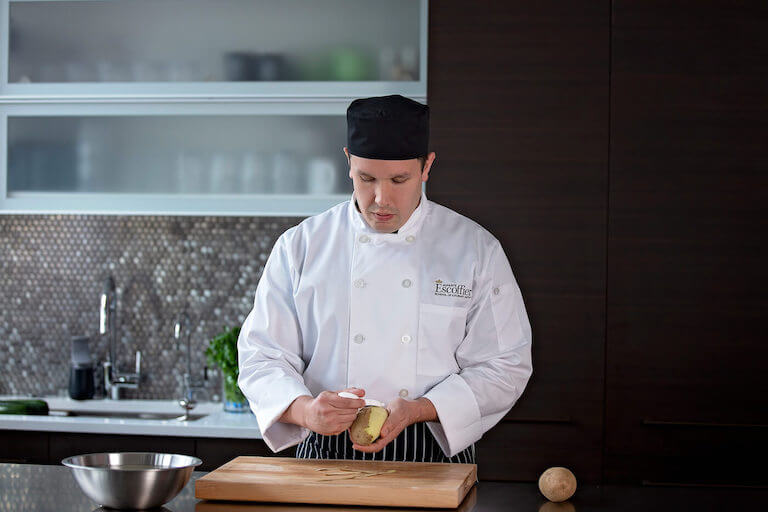
Gain Additional Culinary Experience in a Professional Setting
After completing your education, it’s time to get to work! Culinary school graduates can be prepped and ready for their first entry-level position in the industry—if they haven’t already begun. (Many culinary school students are already experienced cooks and chefs, and industry externships have often led to job offers!)
Your education can be the solid ground that the ladder of your career will rest on. To get to the top, you have to start on the first rung. Depending on your goals, you may choose to work at a restaurant, catering kitchen, food manufacturer, or one of many other businesses.
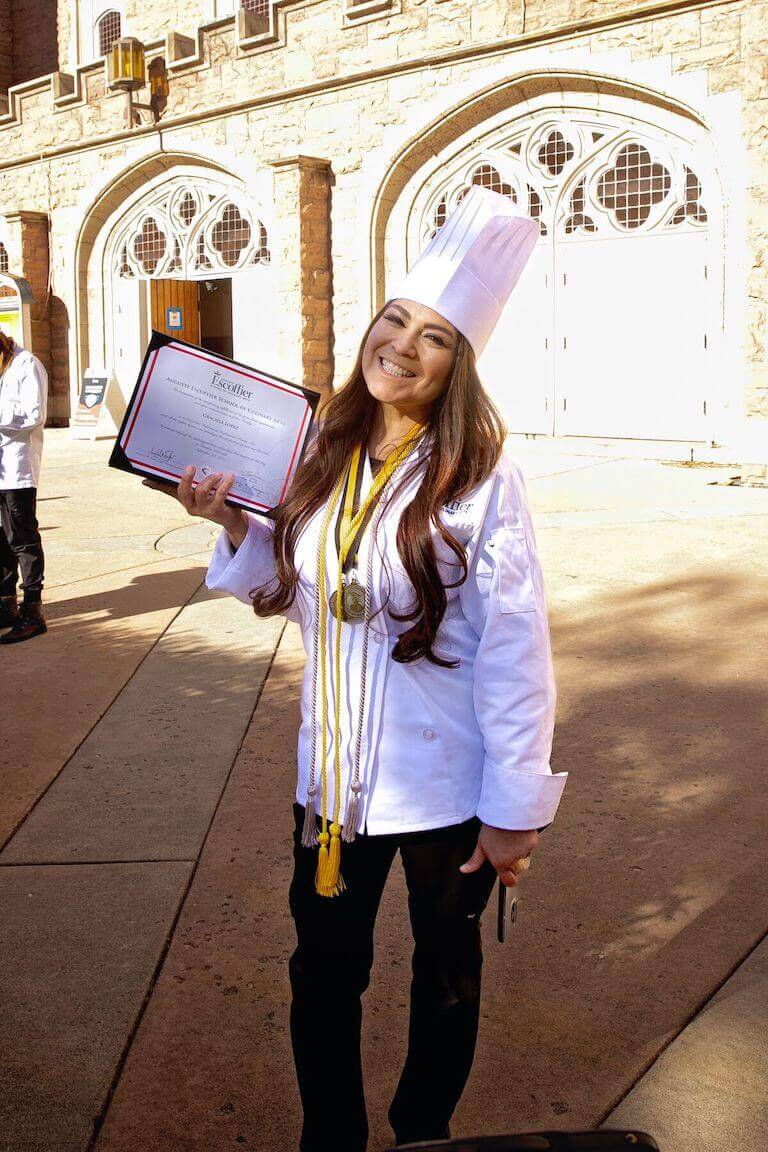
You can also work on reaching your goals as a side hustle. For example, you could work in a restaurant for industry experience and a steady income, while also building your food blog or food photography business on the side.
When Escoffier graduates are ready to start their working careers, they may also have access to some helpful resources. They can receive Career Services assistance, which might help with resume writing, interview prep, and job listings. They can also join the Auguste Escoffier Alumni Association where fellow alumni discuss new job opportunities and can provide mentorship to newer graduates.
What Are the Culinary Arts? They Could Be Your Future.
A culinary arts career is one of hard work and creativity, whether you’re in the hospitality industry, the photography studio, the food lab, or somewhere completely different.
While it can take a number of years to reach the top of your career ladder, a culinary degree or diploma may help to shorten your journey.
Request more information about Escoffier’s in-person and online culinary school programs to see if this is the right place to start your career.
TO LEARN MORE ABOUT THE CULINARY ARTS, EXPLORE THESE RESOURCES NEXT:
- How to Become a Chef: The Complete Guide
- Should You Go to Culinary School? A Guide for Deciding
- The Complete Glossary of Cooking Terms for the Culinary Arts
This article was originally published on August 23, 2021, and has since been updated.
*Information may not reflect every student’s experience. Results and outcomes may be based on several factors, such as geographical region or previous experience.

